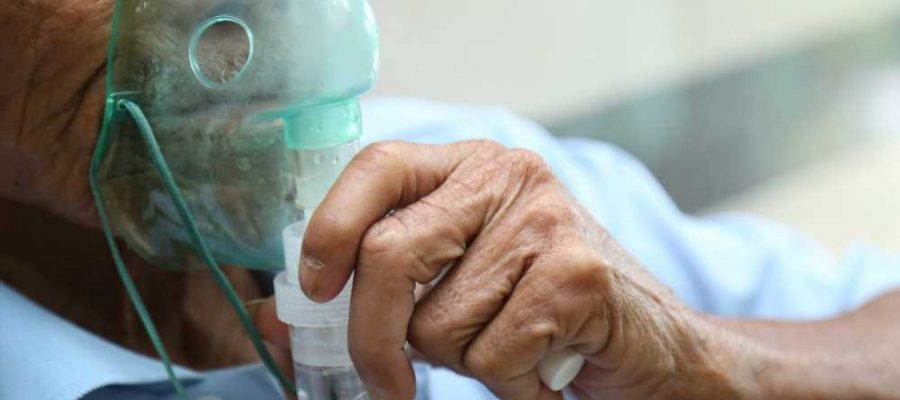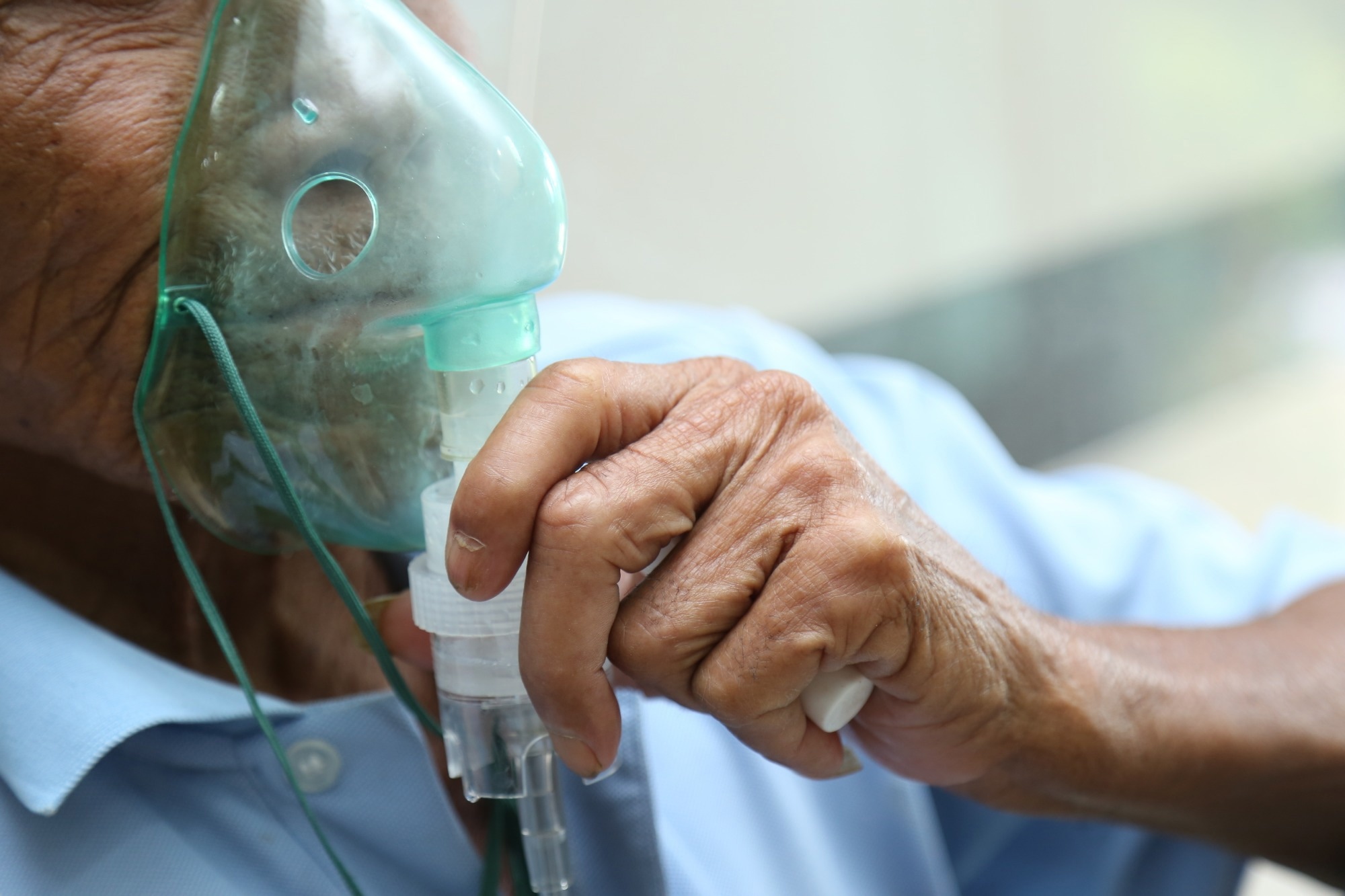
Outcome markers in COPD patients with COVID-19
Conflicting results have been reported on the outcome of coronavirus disease 2019 (COVID-19) in patients with pre-existing chronic obstructive pulmonary disease (COPD). A recent prospective cohort study published in Diagnostics reports assessed patients with both conditions to try and predict the mortality risk.
 Study: Prognosis predictive markers in patients with chronic obstructive pulmonary disease and COVID-19. Image Credit: Janthiwa Sutthiboriban / Shutterstock.com
Study: Prognosis predictive markers in patients with chronic obstructive pulmonary disease and COVID-19. Image Credit: Janthiwa Sutthiboriban / Shutterstock.com
Introduction
COVID-19 is associated with a wide range of symptoms and severity, from asymptomatic and mild disease to severe or fatal systemic inflammation.
Some of the factors that predict high mortality due to COVID-19 include advancing age, pre-existing conditions such as cardiovascular disease, diabetes, hypertension, COPD, cancer, chronic liver or kidney disease, poor mental health, and neurological conditions. Obesity, pregnancy, immunosuppression, and smoking have also been identified as risk factors for severe COVID-19.
However, there is no definitive data on whether COPD impacts survival from COVID-19. Some research indicates that COPD patients experience more severe disease once infected with the severe acute respiratory syndrome coronavirus 2 (SARS-CoV-2) and are at a higher risk for hospitalization, mechanical ventilation, intensive care unit (ICU) admission, and death.
What did the study show?
The current observational cohort study included 165 patients with COPD who developed COVID-19. The aim was to identify biomarkers that could predict outcomes in these patients and whether a model could be created for this purpose using the identified markers.
Most patients were males, older than 65 years, and diagnosed with cardiovascular disease. About 25% of the study cohort required non-invasive ventilation, with 30% of these individuals eventually requiring mechanical ventilation. Of these 13 patients, nine died during the study period.
Patients with severe COVID-19, renal failure, diabetes, a history of ever or current smoking, and oxygen supplementation requirements at the time of admission were at an increased risk for ventilation or death. Likewise, those with high levels of lactate dehydrogenase (LDH) and C-reactive protein (CRP), or low lymphocyte and eosinophil counts, were also more likely to have a worse prognosis.
Patients who succumbed to the infection were more likely to have renal failure, more widespread lung disease, require oxygen treatment when first admitted to hospital, and have high LDH and low lymphocyte levels.
Patients with a non-invasive ventilation score of -4.5 or less were at a greater risk for non-invasive ventilation in 85% of cases. This score was based on the value obtained from the polymerase chain reaction (PCR) test for detecting SARS-CoV-2, the number of lung lobes affected, and presence of diabetes.
The invasive ventilation score predicting invasive ventilation risk was based on the number of affected pulmonary lobes, active smoking history, whether the patient required non-invasive ventilation, and already being prescribed lung medication. Those with a score of -7.15 or less were more likely in 75% of cases to be transferred to the ICU for mechanical ventilation.
The mortality score was calculated based on the presence of kidney failure or mechanical ventilation. A mortality score of -2.8 or less was predictive of death in over 85% of cases. However, the specificity was low, with less than 40% of the mortality variance explained by these markers.
The invasive ventilation score appeared to have the greatest prediction accuracy among all three scores.
What are the implications?
The factors that were linked to a poor prognosis in patients who had both COPD and COVID-19 were the same as those that were linked to a poor prognosis in patients who had only COVID-19.”
Patients with COPD do not appear to be at a greater risk of mortality from COVID-19; however, COPD patients may be more likely to develop COVID-19, with the presence of this pulmonary disease potentially affecting the progression of COVID-19. The most important markers for poor outcomes were those related to the severity of COVID-19, which is similar to other patient groups.
We believe that it is crucial to be ready to provide better care of these patients by knowing that the prognosis is impacted by the infection and not by the respiratory disease, as the virus is here to stay.”
The current study did not examine at how COVID-19 severity was graded; therefore, these conclusions must to be verified. The study findings contradict those reported in earlier studies that identify COPD as a risk factor for mortality from all causes in COVID-19 patients.
The wide disparity in the prevalence of lung disease among COVID-19 patients varied with the period of the pandemic, type of data collection method used, and study population. Medication compliance was not identified in the current study; however, this could also be an important factor for determining the outcome of COVID-19 in this patient population.
- Motoc, N. S., Fagarasan, I., Urda-Cimpean, A. E., & Todea, D. A. (2023). Prognosis predictive markers in patients with chronic obstructive pulmonary disease and COVID-19. Diagnostics. doi:10.3390/diagnostics13152597.
Posted in: Medical Science News | Medical Research News | Medical Condition News | Disease/Infection News | Healthcare News
Tags: Cancer, Cardiovascular Disease, Chronic, Chronic Obstructive Pulmonary Disease, Coronavirus, Coronavirus Disease COVID-19, C-Reactive Protein, Diabetes, Diagnostics, Eosinophil, Hospital, Immunosuppression, Inflammation, Intensive Care, Kidney, Kidney Disease, Kidney Failure, Liver, Lung Disease, Lymphocyte, Mental Health, Mortality, Obesity, Oxygen, Pandemic, Polymerase, Polymerase Chain Reaction, Pregnancy, Protein, Renal Failure, Research, Respiratory, Respiratory Disease, SARS, SARS-CoV-2, Severe Acute Respiratory, Severe Acute Respiratory Syndrome, Smoking, Syndrome, Virus

Written by
Dr. Liji Thomas
Dr. Liji Thomas is an OB-GYN, who graduated from the Government Medical College, University of Calicut, Kerala, in 2001. Liji practiced as a full-time consultant in obstetrics/gynecology in a private hospital for a few years following her graduation. She has counseled hundreds of patients facing issues from pregnancy-related problems and infertility, and has been in charge of over 2,000 deliveries, striving always to achieve a normal delivery rather than operative.